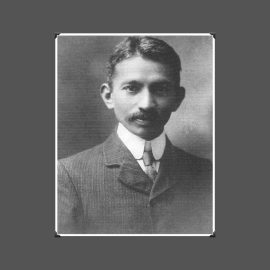

This article is an excerpt from the Shortform book guide to "Thus Spoke Zarathustra" by Friedrich Nietzsche. Shortform has the world's best summaries and analyses of books you should be reading.
Like this article? Sign up for a free trial here.
What is Friedrich Nietzsche’s happiness philosophy? What are his thoughts on pursuing happiness?
In Thus Spoke Zarathustra, Friedrich Nietzsche explains his views on life, love, happiness, and ultimately human existence. According to Nietzsche, you should focus on finding happiness and joy for yourself while allowing room for discomfort.
Read on to learn about Nietzsche’s philosophy of happiness, including a brief learning exercise.
Nietzsche on Happiness
In Friedrich Nietzsche’s novel Thus Spoke Zarathustra, he uses an avatar of himself—a prophet named Zarathustra—to expound his philosophy. In the novel, Zarathustra explains Nietzsche’s happiness philosophy by modeling an attitude of nearly continual joy and exuberance and encouraging others to follow his example. Zarathustra identifies the spirit of solemnity as his nemesis, which he sometimes portrays as a dwarf who tries to hold him back or weigh him down.
Nietzsche further describes the importance of happiness through Zarathustra’s teachings of self-love. He asserts that most people invest too much of their energy in loving others while they themselves are miserable. He advises them to focus less on others and more on being happy themselves, arguing that this will ultimately be better for everyone because happy people rarely cause harm to others, while miserable people tend to make others miserable.
He also speculates that people who emphasize loving others and devote themselves to serving others are motivated mostly by insecurity: They go out of their way to please others because they need others’ approval to feel good about themselves.
| The Advantage of Happiness We can infer from Nietzsche’s portrayal of Zarathustra’s nemesis that unhappiness will hold you back and prevent you from achieving your full potential, while happiness can help you succeed. In The Happiness Advantage, Shawn Achor elaborates on this concept. Achor explains that happiness causes your body to secrete chemicals that stimulate your brain’s learning centers, enabling you to think more clearly, creatively, and quickly. Studies have also shown that happiness improves your physical performance and strengthens your immune system. Achor goes on to discuss how your emotions have a ripple effect, influencing those around you for better or for worse. He explains that your brain has “mirror neurons” that mimic the sensations of people around you: If you see someone in pain, these neurons will cause you to feel their pain, and if you see someone who’s ostensibly happy, you’ll feel their happiness. This works both ways, making your emotions contagious as well. The realization that simply being happy tends to make those around you happier reinforces Zarathustra’s claim that focusing more on self-love and making yourself happy benefits others and society as well. Other authors have also further developed Zarathustra’s principle that insecurity makes you focus too much on others, which makes you unhappy. In The Happiness Equation, Niel Pasricha argues that one of the primary obstacles to happiness is seeking others’ approval. He points out that different people have different needs, goals, and values, so the more you chase others’ approval, the more you’ll push yourself to do things you don’t really enjoy or care about. This can turn into a vicious cycle: You do things you don’t find fulfilling because you crave others’ approval and validation. And doing things that you don’t find fulfilling makes you unhappy, making you crave approval and validation all the more. |
Balancing Happiness With Discomfort
While Nietzsche encourages people to pursue happiness, he also warns them in Thus Spoke Zarathustra not to pursue comfort. On the contrary, he emphasizes the importance of cultivating strength by enduring hardship. For humans to make evolutionary progress, life must become harder over time so that humans become stronger over time.
The primary example Zarathustra gives of cultivating endurance is his approach to dealing with the winter cold: He likens winter to an unwelcome houseguest, whom he mocks by taking a cold bath every morning. By subjecting himself to such hardship, Zarathustra grows stronger.
(Shortform note: Zarathustra’s example is particularly interesting, given that many years later, Wim Hof would argue (and arguably demonstrate) that you can fight stress, heal yourself, and improve your health by subjecting your body to freezing temperatures.)
Exercise: Apply Zarathustra’s Teachings
We discussed Nietzsche’s philosophy of happiness. In this exercise, you’ll think about how you could practice applying Nietzsche’s philosophy in your own life, based on the teachings of Zarathustra.
- Zarathustra teaches that you should live life joyfully and deliberately pursue happiness. What is one thing you could do this week that would make you happy?
- Zarathustra teaches you to be happy, but also to endure discomfort, and even seek it out, because enduring discomfort makes you stronger. Think of the last time you endured discomfort, either physically (like having to be outside in inclement weather) or emotionally (like being in a situation that pushed you outside of your comfort zone). What was the situation? In what ways might it have made you stronger?

———End of Preview———
Like what you just read? Read the rest of the world's best book summary and analysis of Friedrich Nietzsche's "Thus Spoke Zarathustra" at Shortform.
Here's what you'll find in our full Thus Spoke Zarathustra summary:
- Friedrich Nietzsche's views about life and philosophy
- How you should live if you want to participate in the advancement of humankind
- Why you should never let others do something for you that you can do yourself






